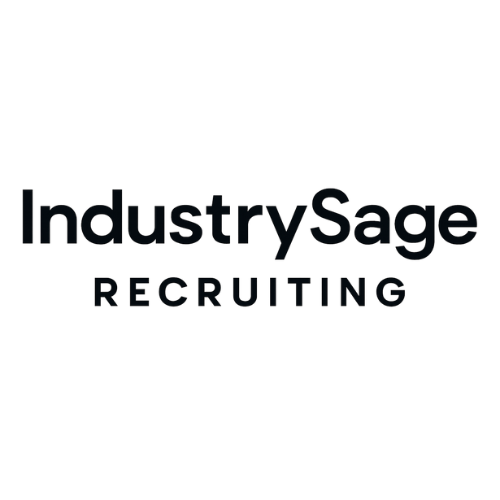Filling sales roles swiftly presents a significant challenge for organizations. An open position can lead to lost revenue and diminished team morale. However, the urgency of hiring can often compromise the quality of candidates. By adopting a strategic recruitment approach that emphasizes clear criteria and data-driven assessments, companies can navigate this dilemma. Understanding the balance between speed and quality could redefine hiring practices and enhance overall performance in sales teams. What strategies might emerge from this balance?
Revenue cost of open roles
The revenue cost of open roles can be substantial, impacting both immediate cash flow and long-term growth potential. Organizations that fail to fill sales roles fast often experience stagnated revenue streams, missed opportunities, and diminished market competitiveness. Fast sales hiring is not merely a tactical necessity; it is a strategic imperative. Each day a sales position remains unfilled translates into lost sales potential, eroding the company’s bottom line. In addition, the longer the vacancy persists, the more challenging it becomes to hire salespeople quickly, as competition intensifies for top talent. Companies equipped with streamlined hiring processes and robust recruitment strategies can mitigate these costs, ensuring they maintain momentum in their sales efforts. By prioritizing swift recruitment and avoiding lengthy hiring cycles, organizations can safeguard their revenue and accelerate growth, positioning themselves advantageously within their industry. Ultimately, the cost of inaction in filling sales roles speaks volumes about a company’s strategic foresight and operational efficiency.
Risks of rushing
While expediting the hiring process for sales roles may seem advantageous in the short term, organizations must confront the inherent risks associated with rushing. Rapid hiring often leads to inadequate vetting, resulting in mis-hires that not only drain resources but also disrupt team dynamics. A rushed process can overlook essential competencies and cultural fit, increasing turnover rates and jeopardizing long-term performance.
Moreover, hasty decisions may foster an environment where employees feel undervalued, diminishing morale and productivity. The urgency to fill positions can overshadow the importance of aligning candidates with organizational goals, potentially leading to strategic misalignment. Ultimately, the cost of a bad hire extends beyond immediate financial implications; it can hinder growth trajectories and damage reputations. Consequently, organizations must balance speed with thoroughness, ensuring that each hire contributes meaningfully to their sales objectives and overall success.
Fast + quality: how it’s possible
Achieving a balance between speed and quality in the hiring process is not only possible but imperative for organizations seeking to enhance their sales teams effectively. By implementing a strategic approach that prioritizes clear criteria and streamlined workflows, companies can considerably reduce the time taken to fill critical roles without compromising on candidate quality.
Utilizing data-driven assessments and targeted sourcing techniques allows firms to quickly identify candidates who not only possess the necessary skills but align with the company culture. Additionally, leveraging technology for initial screenings can expedite the selection process, ensuring that only the most qualified candidates advance.
Incorporating structured interviews and collaborative decision-making further enhances the opportunity to make informed hiring choices swiftly. Ultimately, organizations can achieve a dual focus on speed and quality, ensuring that their sales teams are equipped with top talent that drives performance and growth.
Recruiter methods for speed
Employing targeted recruitment methods can considerably accelerate the hiring process for sales roles. By utilizing data-driven sourcing strategies, recruiters can identify potential candidates more efficiently, focusing on those who not only possess the requisite skills but also align with the company culture. Leveraging advanced technologies such as AI and machine learning can streamline candidate screening, allowing recruiters to assess qualifications swiftly and accurately.
Additionally, building a strong employer brand attracts top talent and reduces time-to-hire, as candidates are more likely to apply to organizations with a positive reputation. Implementing a structured interview process also enhances efficiency; standardized questions and evaluation criteria minimize bias and facilitate quicker decision-making. Finally, fostering relationships with passive candidates through networking and social media engagement guarantees a robust talent pipeline, enabling recruiters to act swiftly when openings arise. Collectively, these methods not only speed up the hiring process but also guarantee quality hires that contribute to organizational success.
Case examples.
Case studies illustrate the effectiveness of targeted recruitment strategies in filling sales roles swiftly and effectively. For instance, a mid-sized tech company partnered with Industry Sage Recruiting to address a critical vacancy in their sales engineering team. By utilizing the Precision Placement Framework™, the firm accessed a curated talent pool, resulting in a placement within three weeks—a significant reduction from the industry average.
Another example involved a logistics firm seeking a supply chain leader. Industry Sage employed data analytics to identify candidates with specific skill sets and cultural fit, ultimately leading to a hire in under a month. Both cases demonstrate that a strategic approach not only accelerates the hiring process but also enhances the quality of candidates. These examples underscore the importance of combining insider knowledge with market intelligence, ensuring that organizations can scale efficiently while maintaining high standards in their hiring practices.
Conclusion
In the quest for a flourishing garden of sales talent, haste can often lead to withering blooms. However, by planting seeds of strategic recruitment and nurturing them with data-driven insights, organizations can cultivate a vibrant landscape where quality thrives alongside speed. Just as a wise gardener knows the value of patience and precision, so too must companies embrace thoughtful methods that yield robust hires, ensuring their sales teams blossom into a formidable force in the marketplace.
